By: Thorsten Overgaard. April 14, 2015. Updated December 31, 2019.
Add to Flipboard Magazine.
Few photographers elevate from 100% unknown to becoming a household name in six years. Vivian Maier did.
On April 21st 2015 it will be six years since she died. The unknown nanny with a camera left a large archive of photographs that has since surprised and exhilarated people all over the world.
These are the 10 untold lessons from Vivian Maier
1. Always wear a camera
As it turns out Vivian Maier always had her camera with her. You might think she only took it out on weekends or her days off.
Not so. She always had a camera around her neck.
2. Make photography a part of your lifestyle
Vivian Maier might likely have chosen her work with kids to be able to get out and about, making a living by being a nanny, yet having freedom to photograph.
She took a few periods off from work to travel to France and other places to simply photograph. But most of her career she was out and about in the city every day with her camera.
Make it your lifestyle to follow your passion.
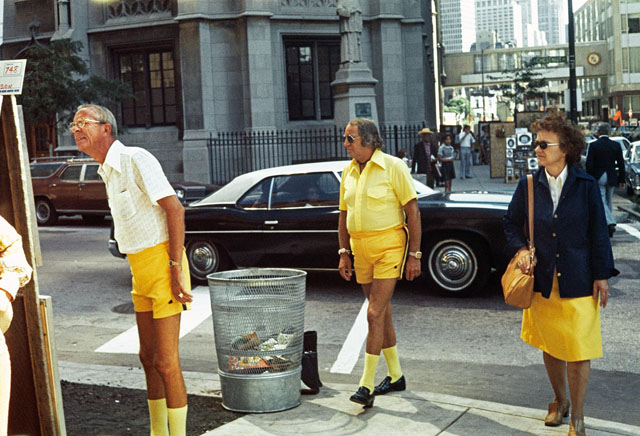
Chicago in 1975 through the lens of Vivian Maier. © Maloof Collection.
3. Build an archive while you can
Vivian Maier photographed and stocked photographs for more than 50 years without anybody ever asking to see any of them. So many artists wait for the clear moment where they can make the masterpiece that will change the world and mark their breakthrough.
That’s not how it works in real life:
Great artists have usually been at it for years when they have their breakthrough. That means they have an archive of photographs, paintings, writings, songs or other that everybody now wants to see and hear. The Beatles started playing in Liverpool in 1957 and experienced quite a roller coaster ride for six years until they achieved fame, and so did Katy Perry (15 years), Dan Brown (who wrote three books before the world heard of him), Miles Davis and many others.
The golden age of an artist doesn’t necessarily occur after their breakthrough. There is good reason to work hard at it while you can: Bob Dylan says himself that he doesn’t know how he managed to write the songs he did in the 60’s and that he can’t write like that anymore.
This should tell you, create when you have the juice for it. Deal with the fame and business when that time comes. You’re in it to create, not to fulfill a demand.
4. Preserve your art
Make sure your negatives – digital or plastic – are stored well for the future. That’s the least you can do.
In the case of Vivian Maier she did actually preserve her negatives, prints and undeveloped film to her best. She didn’t think ahead how they would continue to exist when she was gone.
Even your most mediocre photograph has historical interest because it was taken in another age. Pictures of people have value because few other good images of them exist.
It’s too late to recover lost art when it is gone.
Preserving it is the least you can do. It’s your damn duty: Take it serious.
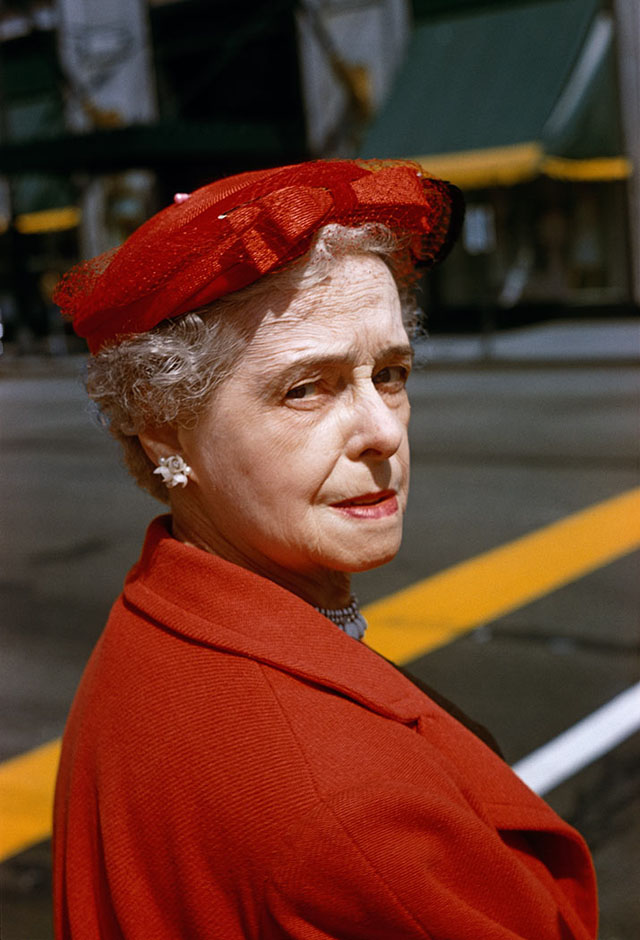
Streets of Chicago. © Maloof Collection.
5. Don’t be an unpublished writer
What we seem to realize from the story of Vivian Maier is that it is a little silly making photographs and never showing them to anybody. It's like being a writer without readers.
She never told anybody she was photographing, and – oddly enough – was never asked about her photographs from the people who knew her and always saw her snapping photographs.
Her negatives might as well have gotten lost, but thanks to John Maloof we get to know them.
Your writings, photographs, drawings or ideas may not seem important to you, but that doesn’t mean that others won’t like them.
I personally think that part of photographing is to preserve the work and make sure others have the possibility to use it to document how a city looked, how people dressed, what was going on, and perhaps even to learn how you saw the world.
Publish it yourself, or at least make sure others who will do so can use it. Donate to the city library for example.
6. Self promote (The century of the audience)
The easiest is to do nothing. Not asking for approval or recognition is the easy way to avoid rejection.
Vivian Maier decided never to seek recognition or approval. She kept it her personal secret.
In todays world you may bypass the publishers, editors and the whole establishment and go directly to the audience. The Internet makes it possible to self publish, self promote and sell directly. You don’t have to ask anyone’s permission. If enough end users like it you are in business.
Traditionally a recording artist, a writer, a photographer would first have to gain the approval of an editor or publisher before they would make it possible for the artist to reach a larger audience.
In the case of Vivian Maier she gained the approval and admiration of the people before any art authority approved her. In fact, the MOMA said “no thanks” to hosting her collection and most of the establishment doesn’t recognize her talent or work. She isn’t schooled and hasn’t followed the traditional way to get recognized.
In the day and age of the internet and direct access to the audience the establishment doesn’t matter and may even themselves be entering the downward spiral that the mass media industry have traveled down so fast the last years.
As a side note, the MPLS Photo Center in Minneapolis built a museum for Vivian Maier, The Vivian Maier Minneapolis Gallery and sell her prints.
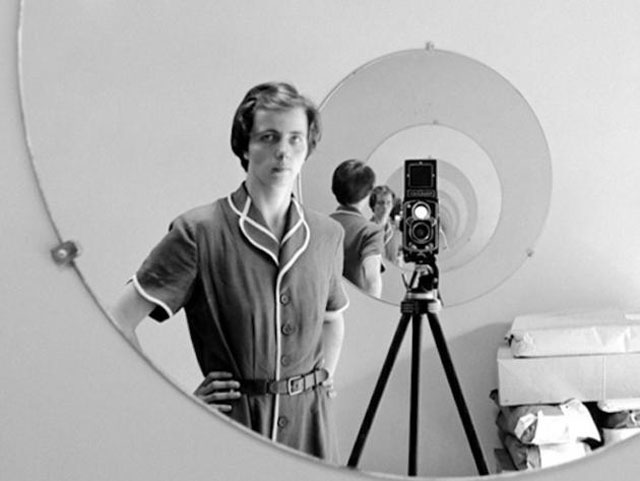
Vivian Maier self portrait. She did many of those. © Maloof Collection.
7. Use your hardcore fans
Every artist gets fans. Some are influential and happen to decide what is printed in the newspaper or what is shown in a museum. Others are billionaires who collect art and want to include your work in their collection.
In the case of Vivian Maier she never attracted any such hardcore fans while alive. But when she had left this earth, John Maloof discovered her and made it his life project to preserve, recover and promote Vivian Maier.
You must be able to spot the people who see in you the star that you are. Help them help you.
8. Storytelling
Surround your work with a good story. A nanny that photographs but never tells and never shows anybody – and a young man (John Maloof) who finds the gold treasure in a flea market. Add to that the suspense of an unknown relative in a small village in France who might inherit it all from the family member he never knew existed.
It’s almost so good a story it could have been scripted. Yet it started as reality and was then scripted into a documentary that was nominated for an Oscar in February 2015.
That is how good a story that was.
My story is that I travel to more than 25 countries a year photographing. I didn’t realize it was a good story until people started asking me to make a book about it.
What’s your story?
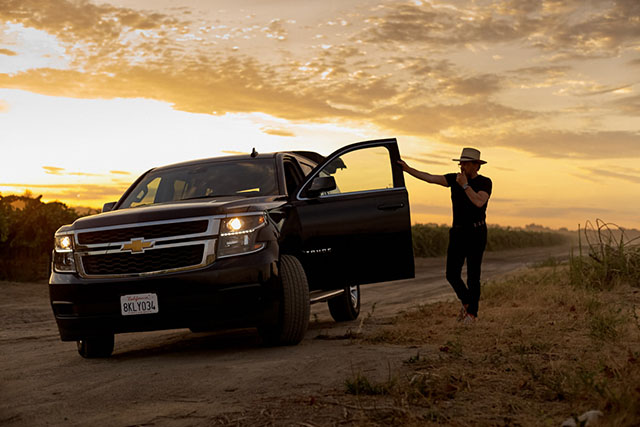
9. Die to fame
Dead artists sell better. Mainly because their work is limited and the artist can be elevated to an iconic myth. People want to own a piece of the artist, the story and the icon.
When the artist dies, only a legacy of limited work remains. Anything scarce may rise to high value simply because demand is higher than supply.
Vivian Maier never got anything out of her own work.
What you should learn from this is to make a living while alive.
10. Break the conformity
Traditionally, a real fine art photographic print is one that the artist have seen, approved and signed.
The more limited, the better. As in a 1982 print signed and numbered back in 1982. Any print you can make now will never be the same vintage print as 1982. It’s unique.
In the case of Vivian Maier the art world has learned that a limited number of prints, never seen, approved or signed by the artist, can be as valuable as a starting price of $4,000.
To put things in perspective, a signed Henri Cartier-Bresson print was $2,500 in the 1980’s when he was alive and widely recognized. Today it is $10,000 - $40,000.
The major institutions in the world don't seem interested in printing posthumous prints for their museums. There exist somewhat 3,000 vintage prints that Vivian Maier did herself, and these hasn’t been organized yet by the owner of the archive, John Maloof.
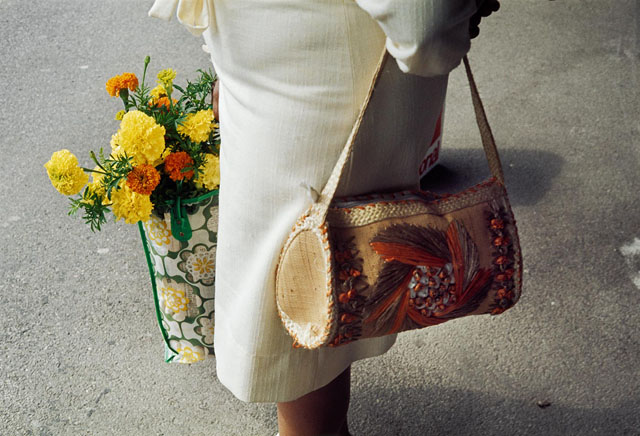
© Maloof Collection.
11. One More Thing
If you have a good nose for flea markets, miracles do happen. Look at John Maloof: Finding Vivian Maier for $380 and knowing there was something about her that is a talent.
He continued by snapping up the rest of the boxes bought by others on the flea market and has the majority of her work now.
Jeffrey Goldstein also found some of the Vivian Maier negatives and offer prints from his website. The about 15% of the Vivian Maier photos he bought he recently sold to Bulger Gallery in Canada.
It is a talent, and not everybody can do it.
One of my workshop students found the Louis Vuitton Binocular bag in a flea market for $300 even it is a limited edition $3,500 that goes for much higher prices these days.
Another continuously finds Vivian Westwood, Betsy Johnson and similar designer-dresses in the $30 range on flea markets.
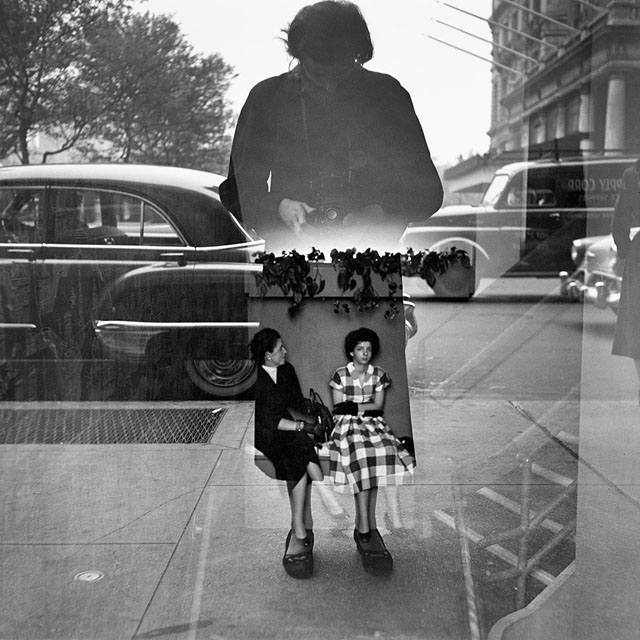
Vivian Maier self portrait. © Maloof Collection.
Vivian Maier
(February 1, 1926 – April 21, 2009) was an American photographer who was born in New York but grew up in France. After returning to the United States as a young adult, she worked for about 40 years as a nanny in Chicago.
During those years she took more than 100,000 images, primarily of people and cityscapes most often in Chicago, although she traveled and photographed on a few occasions outside the US.
A 55-year career
Vivian Maier started photographing in 1949. The first three years she used a Kodak Brownie, but in 1952 she got a Rolleiflex that she used for the next twenty years.
In the mid 70’s she changed to color film and 35mm format, mostly using Kodak Ektachrome film in a Leica IIIc.
Vivian Maier didn’t just leave a large archive of negatives and prints that she never showed to anyone. She also left a large number of undeveloped films.
The undeveloped color film from the 70’s and 80’s are still largely undeveloped because there isn’t any method to develop film 30-40 years over last sale date. It’s a problem.
I would hope – but not expect - that Leica Camera AG have been in contact with the archive and worked on acquiring rights to some of her Leica photographs from the 70’s and 80’s.
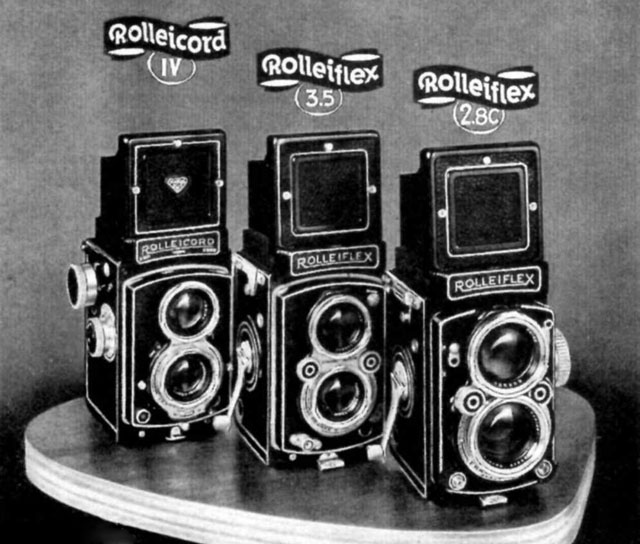
A Rolleiflex ad showing three different models.
The Rolleiflex
The twin-lens Rolleiflex camera with 6x6 cm negatives and a pair of twin lenses was the camera Vivian Maier started out with.
It’s a quite professional camera that has a lens to view the image and another that exposes the film. The camera is fitted with one twin set of fixed lenses, and if one wants to use another lens, one has to buy another camera with that lens. An engineering masterpiece that eventually priced itself out of the market. Vivian Maier used Rolleiflex 3.5T, Rolleiflex 3.5F, Rolleiflex 2.8C and Rolleiflex Automat.
Vivian Maier books
Vivian Maier: Street Photographer.
Vivian Maier: A Photographer Found (John Maloof).
Vivian Maier: Sefl Portraits (John Maloof).
Vivian Maier: Out of the Shadows (Richard Cahan).
Vivian Maier movies/Blu-ray/DVD:
Finding Vivian Maier (Oscar-nominated documentary by John Maloof & Charlie Siskel)
![]()
